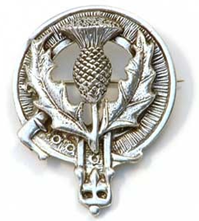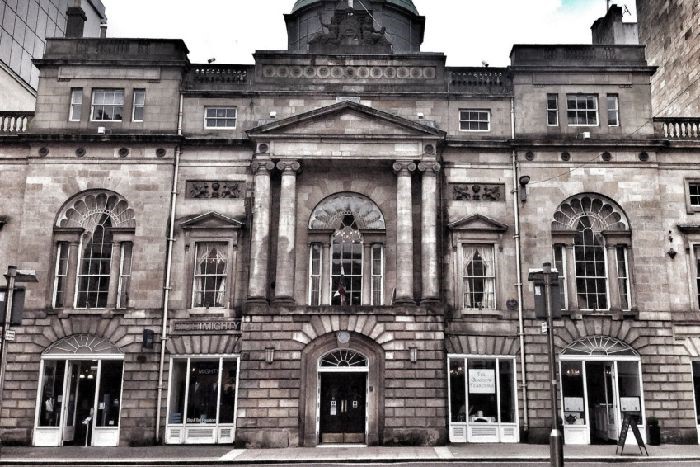 |
||

Best viewed in
|
The wealth generated both directly and indirectly by Caribbean slavery had a major impact on the city of Glasgow, and on Scotland as a whole. Many West Indian merchants and plantation owners based in Glasgow made nationally significant fortunes, some of which boosted the Scottish economy, as did the fortunes of the temporary Scottish economic migrants who traveled to some of the wealthiest of the Caribbean islands. Formed in 1798, the Pig Club was home to the city’s so-called “sugar aristocracy” who derived their wealth from the estates and plantations of the West Indies. At the Pig Club, which met in the Trades Hall during winter, the shows of wealth of its members were unashamedly on display.Rum punch was served, menus were written in gold on white satin and turtle was among the delicacies said to have been served. Balls for hundreds of people were thrown at short notice at the nearby Assembly Rooms. Business in the Caribbean had become a priority for many merchants after much of the tobacco business was ruined by the American Revolution. Direct business links with the estates of Jamaica were held by club members, including its first president, John Gordon of Aikenhead, of Cathcart, Lanarkshire. Gordon was partner in tobacco and sugar trading firm Stirling, Gordon and Co, considered to be the pre-eminent trading company in the West Indies. Charles Stirling of Cadder, who also headed up the firm, was also a member of the Pig Club. Other key figures at the company - as well as Gordon’s son - were to later benefit substantially from payments made by the Government to compensate for loss of slaves following parliament’s final abolition of slavery in 1833. Feasts were four or five courses and balls for hundreds of guests thrown at short notice at the Assembly Rooms in Ingram Street. West Indian rum was central to gatherings. It was used as stakes in bets, with a bottle worth the equivalent of eight shillings. If the President forgot to wear his pig chain to dinner, he would be fined a bottle of the liquor. Politics was also high on the agenda of the Pig Club, with Gordon and Stirling “central luminaries” of the Tory Party, with interviews for prospective MPs held at company offices. Minutes of the Pig Club show the topics up for discussion within the walls of the Trades Hall, from the restoration of Tory rule to Napoleon’s Italian campaign. The Glasgow Anti-Slavery Society was formed in 1822 and, according to the Scottish Archive Network, the city was known as one of the staunchest abolitionist cities in Britain. The last meeting of the Glasgow Pig Club last was held in May 1807 -just two months after the 1807 Abolition of the Slave Trade Act was passed.
|
|

